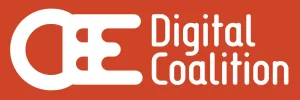
AAVIT welcomes debate on simplification of support for Czech R&D
AAVIT welcomes debate on simplification of support for Czech R&D
Representatives of AAVIT participated in a webinar titled Support for R&D for Czech enterprises in the period 2022+. In addition to representatives of the organizing company Deloitte, the event was attended by interesting guests from the science and research (R&D) community.
The new government puts emphasis on applied research
Helena Langšádlová, Minister of Science, Research and Innovation of the Czech Republic, summarised the experience gained through intensive negotiations with representatives of the R&D community during her current position. She noted that the current economic reality of the Czech Republic, where foreign companies are massively exporting their capital gains, is a natural consequence of the post-revolutionary development, to which it was difficult to offer any other alternative. She assured that, despite the difficult fiscal situation, the Czech government would try to spend sufficient funds on R&D.
The Minister also placed considerable emphasis on the issue of applied research and the need to ensure that the funds spent on R&D were used to the greatest extent possible to commercialise a product or service. She expressed the hope that new operational programmes would be launched as soon as possible. Finally, she called on private sector representatives to come up with concrete solutions to help simplify the use of R&D support.
Beneficiaries of subsidies are plagued by excessive bureaucracy
Bohuslav Čížek, Director of the Economic Policy Section of the Confederation of Industry and Transport of the Czech Republic, shared with the webinar participants his observations from many years of experience. He pointed out a number of everyday complications that the recipients of subsidy titles in the field of R&D face and often discourage them from using them. These include, in particular, complications related to project management. Individual grant titles and often calls have different conditions for project implementation in terms of reporting, which creates significant pressure on beneficiaries. Small and medium-sized enterprises in particular often do not have sufficient administrative apparatus and drawing on subsidies can become counterproductive for them. In addition, Czech companies are subject to the controls of three different institutions, which conduct audits in a specific way.
Čížek expressed some criticism about the lack of subsidy opportunities for companies in the field of R&D, as the call for the national programme Trend has been postponed and the first calls for OP TAK are still pending. He also criticised the lack of qualified workforce and expressed the opinion that the Czech Republic has a deficit compared to neighbouring countries such as Poland and Germany in this regard. It does not sufficiently facilitate the administrative process for new employees related to their stay in the Czech Republic.
Form must not overtake content in a project
“AAVIT welcomes the debate on simplifying support for Czech research and development. It agrees that the emphasis on content over form should be strengthened in the implementation of projects. The current extreme bureaucracy often complicates the implementation of projects and torments the research efforts of the implementer. The researcher is forced to proceed sometimes slavishly in order to meet the formal requirements of the grant provider, thus reducing his room for flexibility in the content part,” notes Jaromír Hanzal, President of AAVIT. “In the field of IT projects, the inflexible interpretation and rigid adherence to bureaucratic procedures is even more evident due to the personnel and material specificity of the IT sector,” concludes Hanzal.


